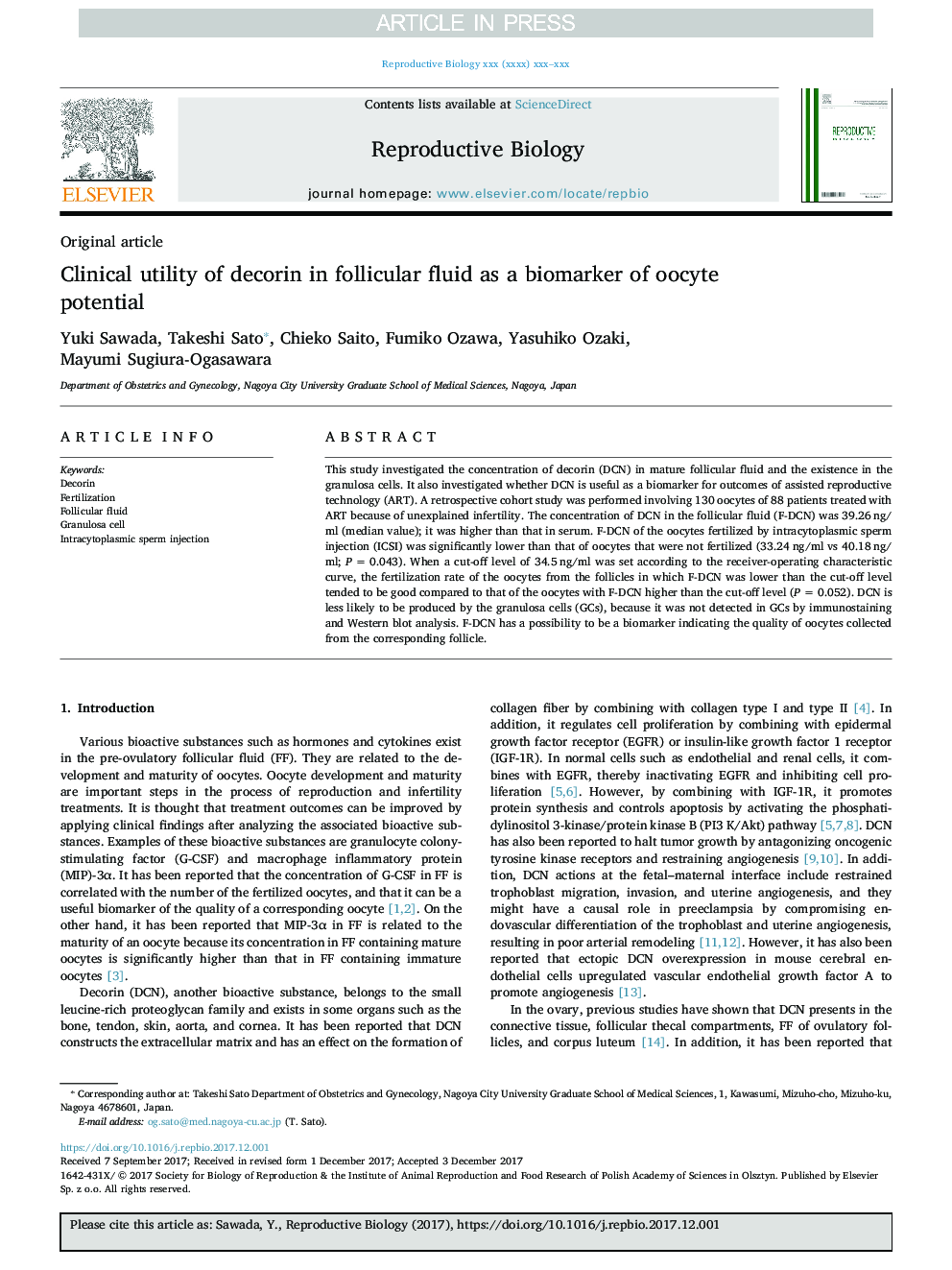| Article ID | Journal | Published Year | Pages | File Type |
|---|---|---|---|---|
| 8393055 | Reproductive Biology | 2018 | 7 Pages |
Abstract
This study investigated the concentration of decorin (DCN) in mature follicular fluid and the existence in the granulosa cells. It also investigated whether DCN is useful as a biomarker for outcomes of assisted reproductive technology (ART). A retrospective cohort study was performed involving 130 oocytes of 88 patients treated with ART because of unexplained infertility. The concentration of DCN in the follicular fluid (F-DCN) was 39.26Â ng/ml (median value); it was higher than that in serum. F-DCN of the oocytes fertilized by intracytoplasmic sperm injection (ICSI) was significantly lower than that of oocytes that were not fertilized (33.24Â ng/ml vs 40.18Â ng/ml; PÂ =Â 0.043). When a cut-off level of 34.5Â ng/ml was set according to the receiver-operating characteristic curve, the fertilization rate of the oocytes from the follicles in which F-DCN was lower than the cut-off level tended to be good compared to that of the oocytes with F-DCN higher than the cut-off level (PÂ =Â 0.052). DCN is less likely to be produced by the granulosa cells (GCs), because it was not detected in GCs by immunostaining and Western blot analysis. F-DCN has a possibility to be a biomarker indicating the quality of oocytes collected from the corresponding follicle.
Related Topics
Life Sciences
Agricultural and Biological Sciences
Animal Science and Zoology
Authors
Yuki Sawada, Takeshi Sato, Chieko Saito, Fumiko Ozawa, Yasuhiko Ozaki, Mayumi Sugiura-Ogasawara,
